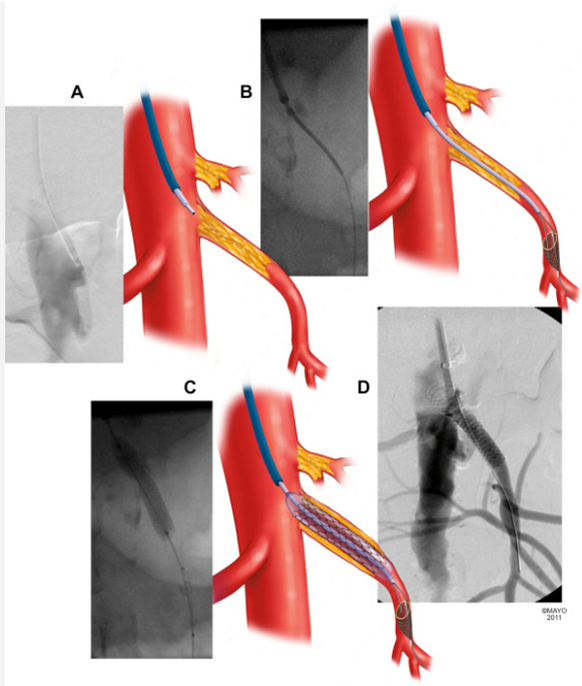What Is Mesenteric Ischemia?
Mesenteric ischemia is a vascular condition in which narrowed or blocked arteries reduce blood flow to the intestines. Chronic mesenteric ischemia causes post-meal abdominal pain and weight loss, while acute mesenteric ischemia is a medical emergency that can lead to bowel death.
This restricted blood flow can result in:
- Post-meal abdominal pain
- Food fear and weight loss
- Nausea, vomiting, or bloating
- Sudden, severe pain (in acute cases)




Our Mission: Restoring Digestive Health
We are committed to restoring blood flow to the intestines before irreversible damage occurs. We take every complaint of food-related abdominal pain seriously and act quickly when the signs point to mesenteric ischemia.
Diagnostic Evaluation:
- Clinical assessment and symptom history
- Mesenteric duplex ultrasound to assess intestinal blood flow
- CT angiography to map narrowed or blocked arteries
- Catheter-based angiography, often with IVUS
- Blood tests to assess malnutrition or ischemic stress (in acute cases)
Treatment Options
Chronic Mesenteric Ischemia:
- Lifestyle and dietary counseling
- Risk factor management (no smoking, control cholesterol, blood pressure)
- Angioplasty and stenting: Opens blocked arteries and restores flow with a short recovery
- Surgical bypass: For long or heavily calcified blockages not suitable for stenting
Acute Mesenteric Ischemia:
- Emergency surgery
- Resection of nonviable bowel
- ICU-level support post-procedure

What to Expect
- Most angioplasty and stenting procedures are performed under local anesthesia with mild sedation and are outpatient
- Open surgical bypass requires a hospital stay due to the need for an abdominal incision and postoperative monitoring
- Abdominal pain, food aversion, and weight loss typically resolve after successful revascularization, and patients often experience improved appetite and weight gain
Frequently Asked Questions
Can mesenteric ischemia be cured?
Yes. For chronic cases, stenting often relieves symptoms completely. Acute cases can be cured with prompt intervention but carry higher risk.
How soon will I feel better after stenting?
Many patients can eat normally again within days.
Why Choose Vascular Clinic?
- Rapid diagnosis and intervention
- Expertise in both endovascular and surgical approaches
- Long-term follow-up for stent or graft monitoring




